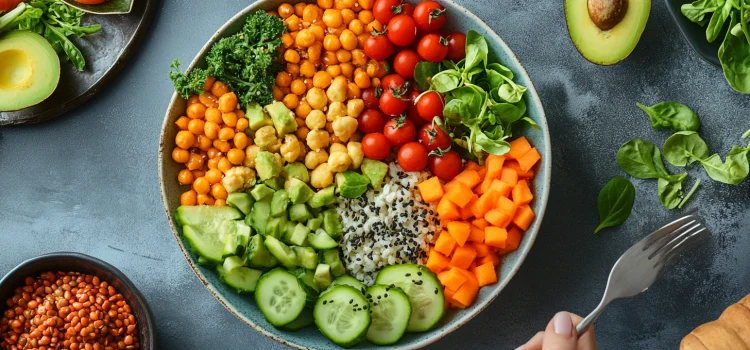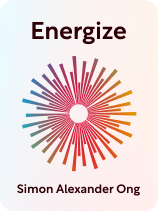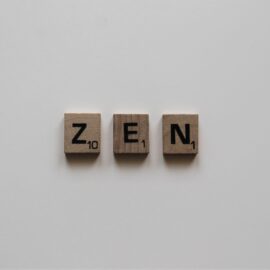

This article is an excerpt from the Shortform book guide to "Energize" by Simon Alexander Ong. Shortform has the world's best summaries and analyses of books you should be reading.
Like this article? Sign up for a free trial here.
How can you optimize your energy by taking care of your body? What are the three cornerstones of physical health?
It should come as no surprise that how much energy you have depends greatly on your physical health. Neglecting your health can lead to burnout and exhaustion, which can stop you from finding your direction in life.
Check out how to nourish your body below.
Keep Your Body Nourished
While you can’t control everything that happens in your body, Simon Alexander Ong identifies three cornerstone habits to focus on if you want to learn how to nourish your body—exercise, diet, and sleep.
| The Uphill Climb to Health Unfortunately for many people, burnout and exhaustion are rampant in the workplace. On top of that, the places where we live and work often promote unhealthy eating and sedentary behavior, with easy access to high-calorie snacks and few opportunities for physical activity. Plus, food is central to many social interactions, such as dining with friends and celebrations at work, and unhealthy foods are often more accessible and affordable in such situations. Burnout at work is a leading cause of employee turnover, but workers aren’t leaving to find their true calling as much as they’re simply trying to escape whatever situation they’re in. With stress as such a factor in many people’s lives, we often struggle with motivation when it comes to making exercise and diet choices that, as Ong says, would help alleviate the problem. However, if you start down the path of healthy eating and exercise, both activities can promote each other. In particular, studies show that higher levels of physical activity lead to more purposeful eating choices. Conversely, making good diet choices heightens the benefits of regular exercise. |
Ong explains that exercise triggers a reaction in your body that releases mood-lifting hormones that increase your overall energy. However, exercise won’t lift your spirits if it’s something that you dread. Therefore, it’s important to discover forms of exercise that you actually like. Some people prefer hiking in nature or walking through parks instead of going to the gym. You may find that you enjoy cycling or yoga as part of your exercise plan. Ong suggests that you give yourself a variety of exercise options to choose from so that you don’t feel stuck in a routine, and that you make some form of exercise a can’t-skip part of your daily regimen.
| Exercise Smarter Ong highlights how exercise increases your body’s production of hormones that naturally boost your mood and reduce pain, but there are even more cognitive energy benefits to a good workout session. In Keep Sharp, neurosurgeon Sanjay Gupta explains that the hormones released during exercise also reduce stress and diminish your risk of cognitive decline and dementia as your age. Despite this and other benefits of exercise that Ong describes, you may still view it as a form of punishment or torture, which would make it difficult to find an exercise routine you enjoy. If so, then the first thing you’ll have to work on is your attitude toward exercise. In Intuitive Eating, Evelyn Tribole and Elyse Resch suggest ways to do this. First, you need to recognize its positive impact on your mood and energy levels, rather than viewing it solely as a means to burn calories. You can invite others to join you, since a shared experience can make the process more enjoyable. Also remember to celebrate your progress, avoiding unrealistic fitness goals and remembering that exercise is your choice, not an obligation. The forms of outdoor exercise Ong mentions may be more enjoyable for you, with the bonus of boosting more than just your physical health. In The Nature Fix, Florence Williams writes that spending time in nature reduces stress, boosts your immune system, and improves your cognitive functioning. This is because humans didn’t evolve to live in cities—our bodies and minds are still drawn to the outdoors. The urban life we’ve grown accustomed to is full of background distractions that keep us from relaxing, like the sounds of honking cars or distractions like advertisements and emails that keep us in a state of mental fatigue. Spending time in nature, while physically productive, is also a reset for the mind. |
Diet plays an equally significant role in raising your body’s available energy. It’s a simple equation—food equals fuel, but you need to make sure you have the right fuel in your tank. Ong doesn’t point to any modern diet fads, but simply emphasizes the importance of staying hydrated, eating balanced meals, and incorporating energy-boosting, nutrient-rich fruits and vegetables into your diet in place of valueless, over-processed snacks. When it comes to what we eat, temptations abound, so if you want to make healthy choices, Ong recommends planning your meals ahead so you can strategically ensure you have foods available that support your energy.
(Shortform note: Sometimes it’s hard to make the healthy food choices Ong recommends because it’s not always obvious what those healthy choices are. In In Defense of Food, Michael Pollan puts the blame on Western nutrition science for decades of confusing messages about what is and isn’t healthy to eat. Pollan’s food advice is mostly in line with Ong’s—eat whole foods with very few ingredients, with an emphasis on fruits and vegetables. However, Pollan says you should be suspicious of foods that explicitly claim to be healthy on their labels. These claims are often designed to be misleading, while food that’s actually healthy can be found in your grocery store’s produce section without any labels at all.)
Reset Your Energy
Lastly, Ong emphasizes the need to get a good night’s sleep to reset your mind and body, so that you give yourself a fighting chance to keep your energy up throughout the day. Everyone’s sleep schedule is different, but Ong writes that whatever your needs, you should plan your sleep in a way that lets you get the best quality of rest that you can. In particular, your schedule should be consistent, and you should build in time to relax before bed. This means setting firm boundaries on when to stop eating, looking at electronics, or doing anything job-related. Instead, consider reading, listening to music, or meditating as alternatives. You can also use this time to plan your next day, giving you a head start on the morning.
(Shortform note: In Sleep Smarter, Shawn Stevenson goes into more detail on how and why you should improve your sleeping habits. Stevenson writes that sleep aids your body’s natural growth and repair processes, as well as engaging your brain’s waste removal system, letting it flush the toxins and dead cells that build up while you’re awake. In addition to the sleep-preparation steps Ong lists, Stevenson also says you should get more sunlight in the morning. Exposure to sunlight early in the day helps regulate your body’s natural rhythms by prompting the release of hormones in your brain that make you alert and align your other biological processes with the day-night cycle your body craves.)

———End of Preview———
Like what you just read? Read the rest of the world's best book summary and analysis of Simon Alexander Ong's "Energize" at Shortform.
Here's what you'll find in our full Energize summary:
- How to cultivate and replenish your energy
- Why your personal energy can be infectious
- How money can give you energy and take it away






